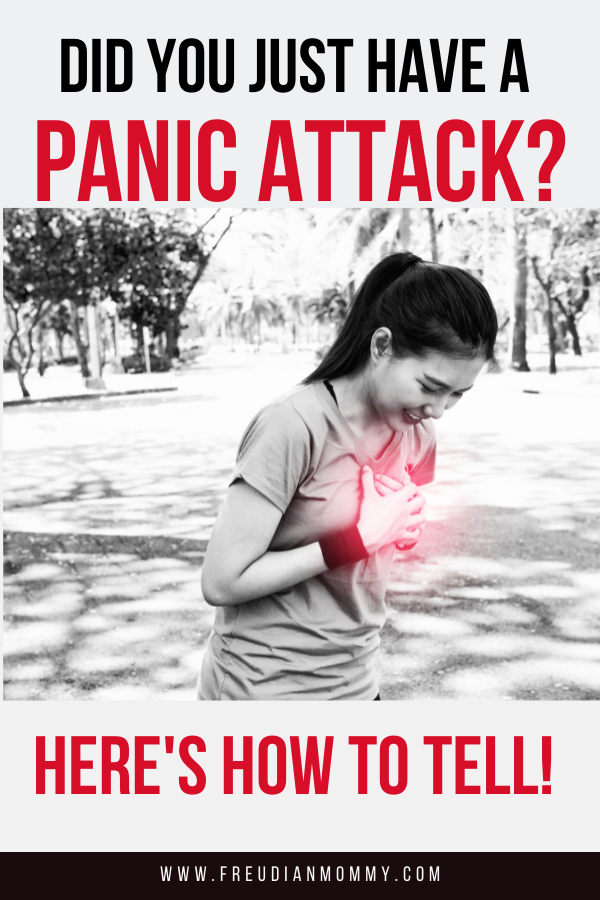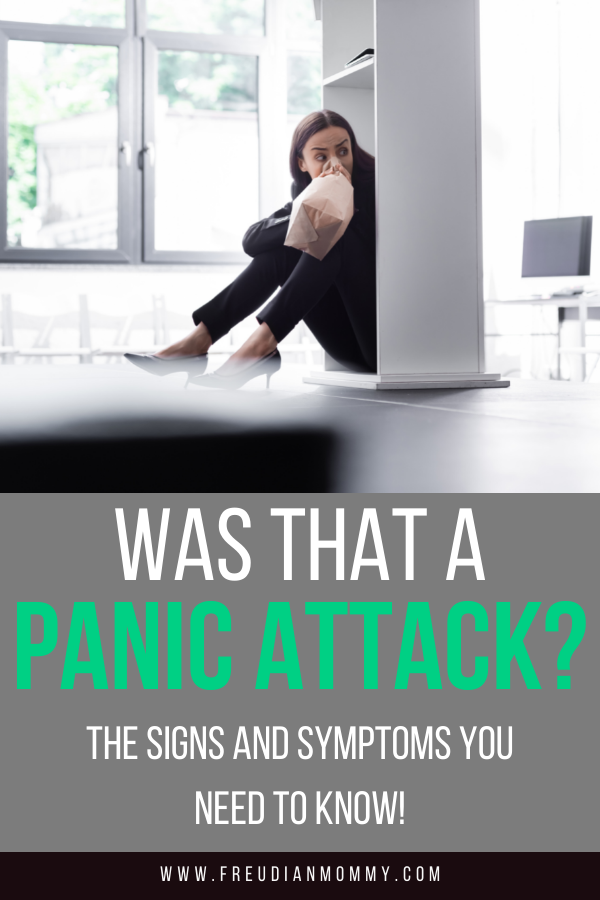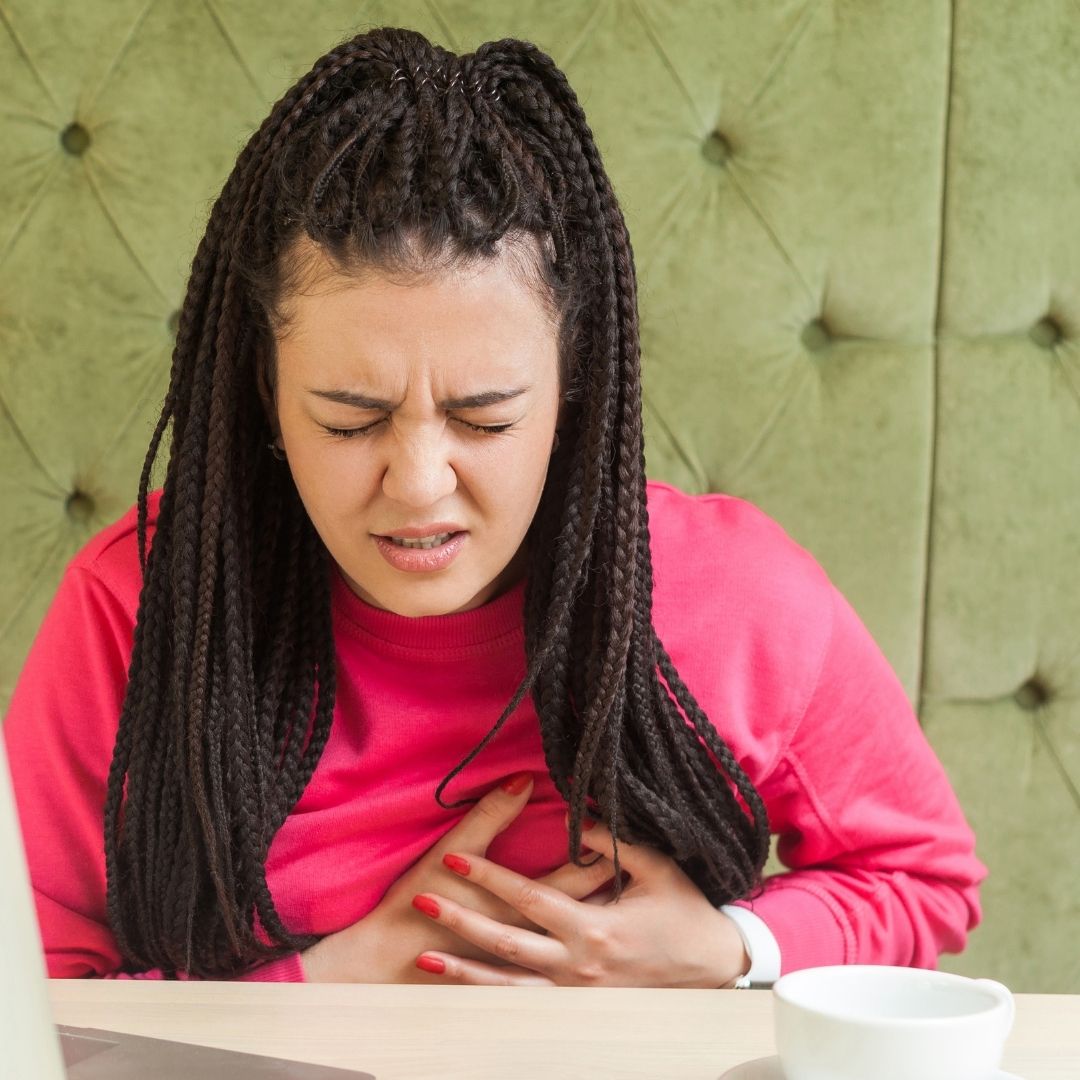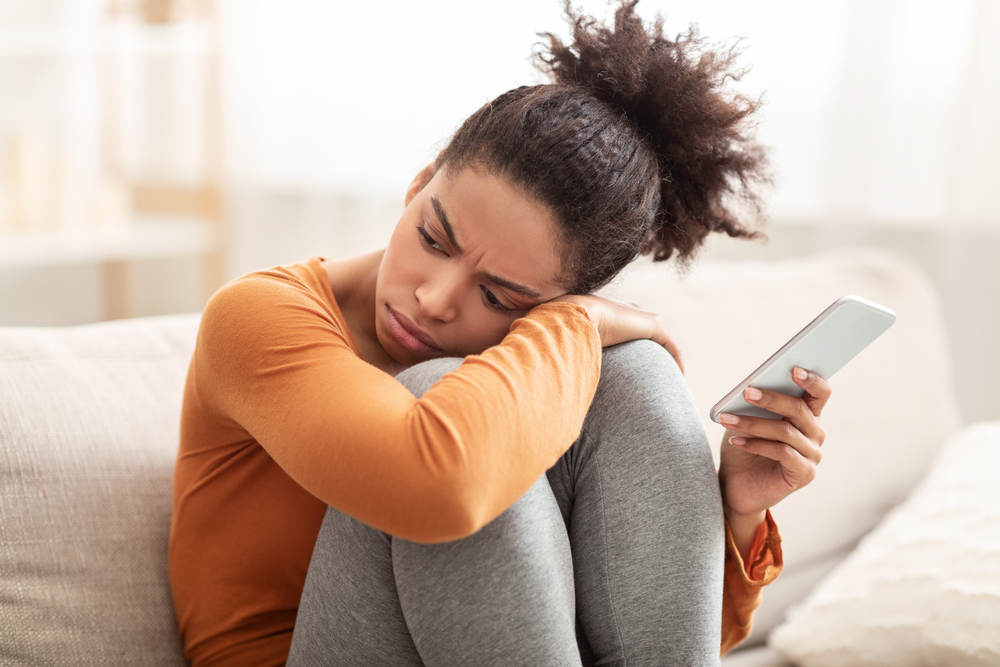Did You Just Have A Panic Attack but aren’t sure what the signs and symptoms are? Here’s How To Tell!
What is a panic attack?
Having a panic attack can be scary because it almost feels like you’re having a heart attack. A panic attack is a fear that you will go crazy, lose control or even die.

What does a panic attack feel like?
When a panic attack happens, you get this sudden and intense surge of fear accompanied by severe physical symptoms such as heart palpitations, shortness of breath, and the feeling as if you are choking. That’s why many people who have experienced a panic attack are more likely to visit the hospital.
The unfortunate component about panic attacks is that they are unpredictable. You can have one at any time, anywhere, and it doesn’t matter if you’re calm or anxious. There are times when you won’t even know the cause of the panic attack because, with panic attacks, the stressor is unidentifiable.
Signs and symptoms of a panic attack:
- Sudden and unexpected surge of anxiety
- the fear of losing control, going crazy, or even dying
- shortness of breath
- the sudden pounding in your chest
- Chest pain
- numbness or tingling feeling
- trembling or shaking
- Hot flashes or chills
- dizziness
- nausea
- headaches
- feeling as if you’re choking or can’t catch your breath
- heart palpitations
- derealization or feeling detached from yourself
- excessive sweating
How long do panic attacks last?
Panic attacks peak within about 10 minutes and then dwindle and become less intense.
What causes panic attacks?
The exact cause of panic attacks is not known; however, genetics and temperament play a role.
Genetics:
Individuals with first-degree relatives such as parents and siblings have an increased risk for developing a disorder in the anxiety family.
Temperament:
Individuals whose primary coping skills are withdrawal and avoidance also are at risk.
Life events and stressors:
Major changes such as health problems, work problems, being divorced or widowed, relationship problems, financial problems, difficulties in school can lead to or exaggerate existing symptoms of panic attacks and other anxiety disorders.
What are the risk factors for developing panic attacks?
risk factors that may increase a person’s risk for developing a panic attack or panic disorder include:
Environment:
Negative and adverse childhood effects can leave a person vulnerable to developing a panic attack or panic disorder.
Mental illness:
There is a correlation between panic attacks and other psychiatric disorders such as depression, generalized anxiety disorder, and specific phobia. Panic attacks may also leave you vulnerable to developing sleep disorders such as insomnia.
Gender:
Women are at a greater risk for having a panic attack which can eventually evolve into a panic disorder.
Genetics and temperament are also risk factors for developing panic attacks or panic disorder.
Treatment for panic attacks:
Cognitive Behavioral Therapy (CBT):
Cognitive Behavioral Therapy or CBT is a very effective approach that is used to treat various mental illnesses, including panic attacks and panic disorder.
Dialectical Behavioral Therapy (DBT):
Dialectical Behavioral Therapy or DBT combines Cognitive Behavioral Therapy techniques with individual and group therapy to learn about mindfulness and managing emotions.
Medication:
Depending on the severity of the panic attacks or panic disorder, medication may be used in conjunction with psychotherapy if therapeutic approaches alone are not effective in helping decrease the symptoms of panic attacks.
Medications like benzodiazepine such as Xanax, Klonopin, Valium are effective and work pretty quickly to decrease panic attacks and panic disorder symptoms. However, because of the risk of becoming physically dependent upon them, providers turn to alternative and non-benzodiazepine, such as buspirone, which takes much longer to work.

What to do when you or someone you know is having a panic attack
When you or someone you know is having a panic attack, the best thing you can do is remember to:
stay calm:
Now I know that’s easier said than done, considering the severity of panic attack symptoms. However, getting yourself worked up only lengthen and worsen the panic attack.
Focus on your breathing:
Use your breathing as a way to calm down. As you calm down, you are communicating to your body that it is safe and not in any danger.
Use the 5, 4, 3, 2, 1 grounding technique:
Using this technique will help you focus on the present moment. It will distract and get you out of your own head.
This grounding technique is a kind of mindfulness method and a coping strategy used to help focus your mind and body in the present or the here and now.
It also helps reduce intense feelings by using the five senses, sound, touch, smell, taste, and sight, to connect you with the present moment.
How to use these grounding techniques
While taking deep breaths in and out, remind yourself that you are in a safe space.
Inhale slowly while counting to 5. Then exhale completely to a count of 5. Repeat this 2-3 times or as you see fit.
Using your senses, say out loud 5 things you see, 4 things you hear, 3 things you can feel, 2 things you can smell, and 1 thing you can taste like a piece of hard candy.
Check-in with your medical and mental health provider:
And finally, check in with your providers. Once the panic attack has subsided, it is always important to inform your primary care provider and your psychotherapist about the panic attack.
My perspective as a therapist:
Although panic attacks are unpredictable and can happen whether you’re calm or anxious, they are positive lifestyle changes you can make to minimize the risk of those attacks taking place more frequently or evolving to a panic disorder.
Here’s a list of the 7 things you can do to decrease your risk of having a future panic attack:
1. Continue to practice mindfulness:
Even after your panic attack has ended, you must continue to practice mindfulness. Mindfulness will prevent you from flashing back to the past and prevent you from worrying about the uncertain future by keeping you grounded in the present moment.
2. Maintain your social life:
Be careful not to give up your social life. The thing about panic attacks is that once you have had them, it’s easy to become fearful of having a recurrent episode, especially while in public or with a friend. This fear can cause you to neglect your social life and start engaging in maladaptive practices such as avoiding certain activities and excessive drinking.













